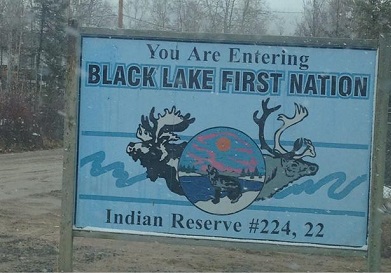For the first time in nearly eight years, clean drinking water is flowing through the taps of Black Lake Denesuline First Nation.
The community of about 1,300 people in Saskatchewan’s far north recently had its drinking water advisory lifted, meaning clean water is flowing to “190 homes and community buildings, including the school, band office and firehall,” according to a social media post from Indigenous Services Canada (ISC).
The advisory lifted on Jan. 23, according to ISC’s website.
That leaves six First Nations in Saskatchewan with long-term drinking water advisories.
The upgrades to the community’s water treatment plant cost roughly $11 million, addressing the long-term drinking water advisory first declared in April 2013, Indigenous Services Minister Marc Miller said.
“I don’t think I could offer any credible explanation or justification as to why this went on so long,” he said, calling the delay “unacceptable.”
Chief Archie Robillard, who was unavailable for a full interview, said he was pleased the see the water advisory lifted after a years-long wait. A range of other issues nonetheless continue to face communities like his, he said.
“We’re living in a Third World country, for Pete’s sake.”
Robillard pointed to ongoing concerns about unsafe drinking water in other First Nations. He said First Nations also continue to experience racism in areas like the legal system, and don’t see enough benefit from mining activity near their homes.
“We are living in cobalt, diamonds, gold, uranium, (and) potash. You name it, we have it,” he said. “I’m going to make noise in Northern Saskatchewan until I’m heard across this nation.”
In December, Miller admitted the federal government wouldn’t meet its March deadline of lifting all long-term boil water advisories across the country. COVID-19 interrupted supply chains and construction, delaying the long-running pledge to lift all advisories, the department said at the time.
Miller, who has held the portfolio since November 2019, took responsibility for the delay.
Upgrades to water plants and testing also take time, he said in an interview, noting a second wave of COVID-19 closed several First Nations and slowed progress.
He is optimistic the coming months will see advisories lifted for Ministikwan Lake Cree Nation, Little Pine First Nation, Star Blanket Cree Nation, and White Bear First Nation.
Miller did not offer a timeline on other water advisories, including Peter Ballantyne Cree Nation and Peepeekisis Cree Nation.
“Those plans are in place. And the communities are working really hard reach those goals,” he said.
